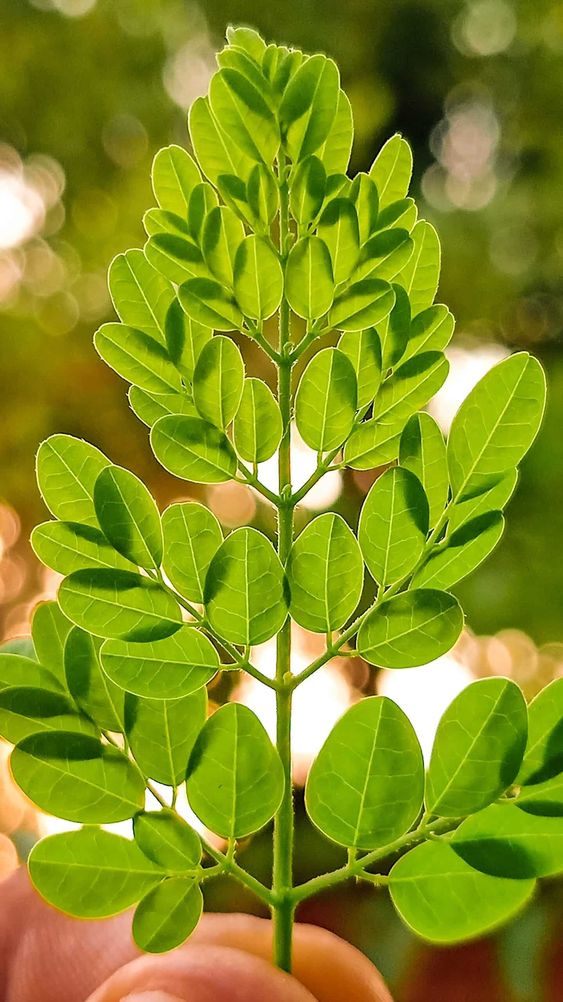
Moringa, often referred to as the “miracle tree” or “drumstick tree,” is renowned for its nutritional value and has been used in traditional medicine for centuries. Every part of the Moringa tree, including its leaves, seeds, bark, and roots, has a unique health benefit. Here’s a closer look at the array of benefits that Moringa offers:
Nutritional Profile
- Rich in Vitamins and Minerals: Moringa leaves are packed with vitamins A, C, and E, as well as calcium, potassium, and protein. Just a few tablespoons of the leaves’ powder can fulfill a significant fraction of your daily requirements for these essential nutrients.
- High Antioxidant Content: Moringa contains antioxidants like quercetin, chlorogenic acid, and beta-carotene, which combat free radicals in the body. These antioxidants are crucial for protecting cells from damage and may help lower blood pressure and boost overall health.
Health Benefits
- Anti-Inflammatory Properties: Moringa has anti-inflammatory properties due to its isothiocyanates. This can be beneficial in treating conditions like arthritis and may also help reduce inflammation in the body’s cells.
- Supports Brain Health: The high antioxidant and neuro-enhancer activities of Moringa may aid in boosting brain health and cognitive function. It has been used in traditional therapies for mental health disorders, including depression and anxiety.
- Balances Blood Sugar Levels: Several studies have shown that Moringa leaves may help lower blood sugar levels, making it a beneficial supplement for people with diabetes.
- Protects the Cardiovascular System: The powerful antioxidants in Moringa can help prevent cardiac damage and has been shown to maintain a healthy heart by controlling blood lipid and cholesterol levels.
- Enhances Wound Healing: Due to its blood-clotting properties, Moringa extracts can help reduce clotting time, which means it helps wounds close and heal faster.
- Antimicrobial and Detoxifying Effects: Moringa has antimicrobial and antibacterial properties, making it effective in fighting infections caused by Salmonella, Rhizopus, and E. coli. Its detoxifying effect comes from its ability to purify water, absorbing impurities and improving its quality.
Uses in Diet and Supplements
- Dietary Supplement: Moringa is available in several forms, including powders, capsules, and teas. Its leaf powder can be added to smoothies, soups, and salads for an extra nutrient kick.
- Cooking: In many parts of the world, Moringa leaves are used fresh like spinach or dried as a herb to season dishes.
Considerations
- Pregnancy: Pregnant women should consult with a healthcare provider before consuming Moringa, especially in large amounts, as the roots and bark can potentially lead to contractions.
- Interaction with Medication: If you are taking medication, particularly those that are processed by the liver, consult with a healthcare provider due to Moringa’s possible effect on liver enzyme activity, which could interfere with drug metabolism.